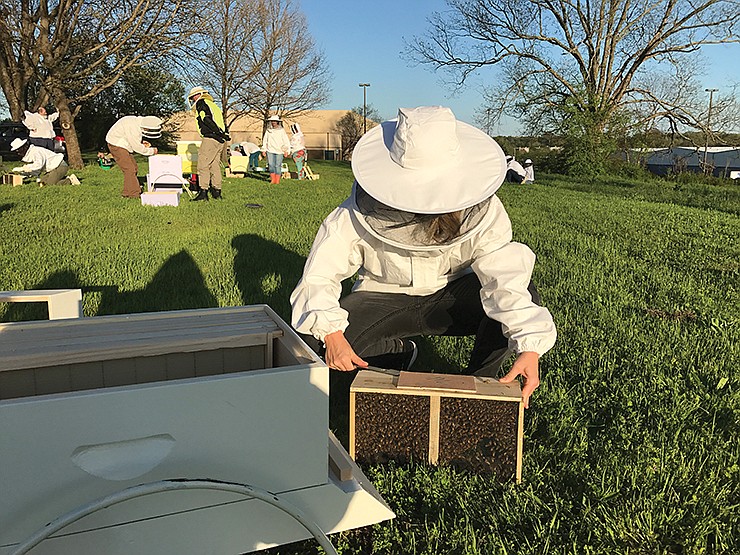Finding places for beekeeping can be a challenge for city dwellers. But apiaries modeled after community gardens have become a popular option.
Community beekeeping operations are usually comprised of shared sites on public or private properties, organized by or for people trying to turn out fresh plants or products.
Some, like the community apiary inside The Hudson Gardens & Event Center in Littleton, Colo., also educate. Its objectives are to train, mentor and provide fellowship for hobbyist beekeepers, promote interest in beekeeping and boost plant pollination in Hudson Gardens and around the neighborhood, said Amanda Accamando, the center's education and volunteer manager.
The apiary "brings together a dynamic and unique community of beekeepers that not only share the common goal of supporting honeybee health but also greatly value learning from one another" and spreading the word, Accamando said.
No fees are charged for the program since the beekeepers also do volunteer work. But they must provide their own equipment, protective gear and honeybees. Hudson Gardens delivers the infrastructure, funding, staffing and administrative help.
"That allows our participants to focus on the health of their colonies and their own development as beekeepers, mentors and educators," Accamando said.
The program has been growing steadily and she expects to have more applicants than hive spaces available by next year. "We are actively seeking additional ways in which we can engage with beekeepers in our area beyond the apiary's physical borders," Accamando said.
Bee stings and liability are obvious concerns, and the public garden's hobbyist beekeepers are required to follow city codes. Hives must be placed at least 25 feet from property lines, and bee flyways are directed away from private dwellings. No visitors are allowed to approach the hives without a beekeeper escort, and each guest must sign a waiver before entering the apiary.
Burgh Bees in Pittsburgh established the first urban community apiary in the United States.
"We realized more and more people in the city were interested in beekeeping," said Stephen Repasky, a master beekeeper and Burgh Bee president. "We wanted to help find places for them to do that so we adopted the community garden example."
The beekeepers eventually found a vacant piece of land and signed a lease with the city for $1 a year to landscape and manage it.
"We went from having a gravel lot full of used needles and garbage to a fenced property with perennials and pollinators," Repasky said. "It's going so well that we hope to open a second apiary."
The City of Pittsburgh continues to look for new ways to utilize its vacant lots, Repasky said.
"Everyone gets a boost when the city is able to find people who can organize and transform those sites," he said. "It adds value to property you can't put a price on."
